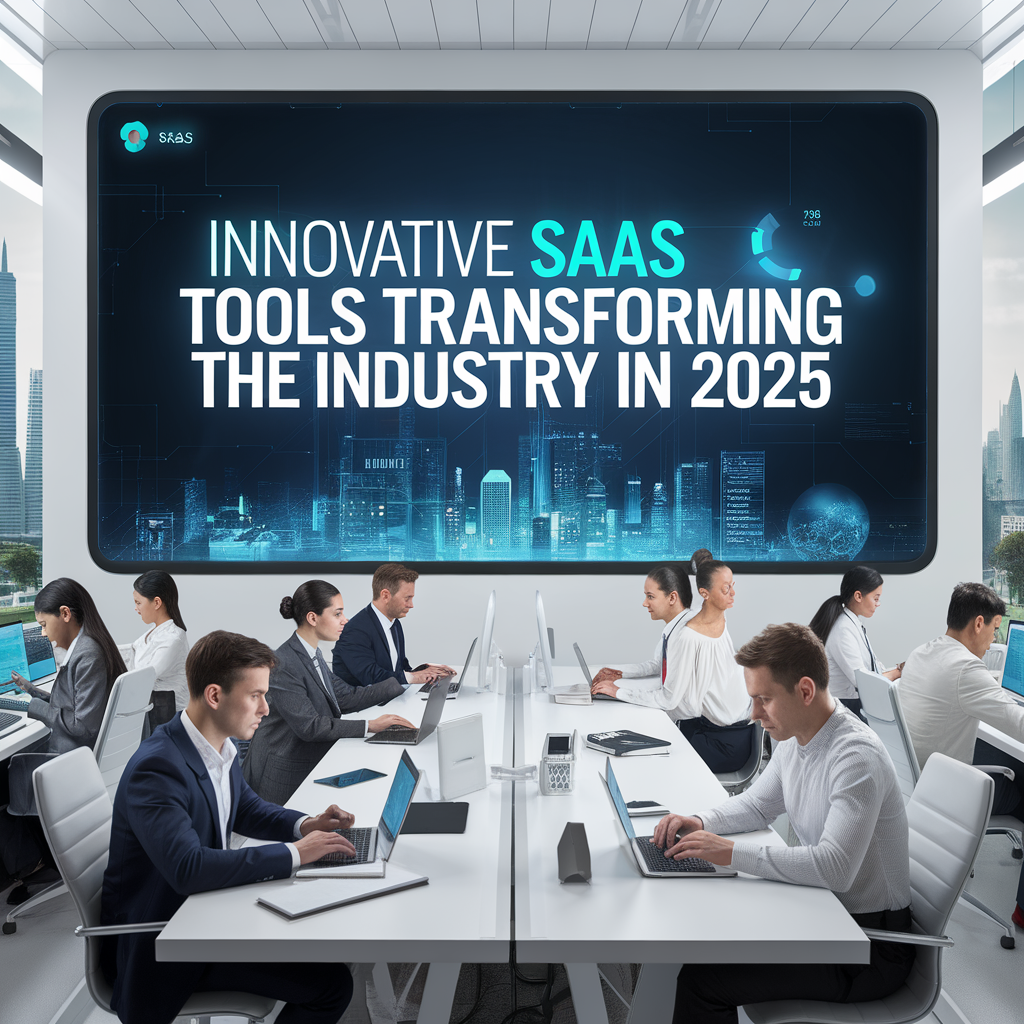New in 2025: 16 Tools That Are Changing the SaaS Game

Introduction
In the ever-evolving landscape of Software as a Service (SaaS), 2025 is shaping up to be a pivotal year. With technological advancements accelerating at an unprecedented pace, businesses are leveraging innovative tools to stay ahead of the curve. From AI-powered analytics to cloud infrastructure automation, these tools are not just enhancing operational efficiency but are also redefining the way businesses interact with their customers. In this blog post, we explore 16 groundbreaking tools that are transforming the SaaS industry in 2025.
AI-Powered Predictive Analytics Tools
AI-powered predictive analytics tools are revolutionizing how businesses understand and interact with their customers. By providing real-time data analysis, these tools can predict customer behavior and assess churn risk, allowing businesses to retain customers more effectively. The impact is profound, enhancing decision-making processes and improving customer retention rates.
Agentic AI Solutions
Agentic AI solutions are at the forefront of transforming traditional workflows. These tools offer autonomous task execution, intelligent data analysis, and automated customer service, significantly reducing operational costs and response times. By enabling software agents to handle complex tasks without human intervention, businesses can focus on strategic initiatives, driving innovation and efficiency.
Unified Data Platforms
Unified data platforms integrate data from multiple sources, providing a comprehensive view of customer interactions and operational metrics. With real-time syncing and robust data governance, these platforms facilitate better decision-making and enhance operational efficiency, making them indispensable in the modern SaaS ecosystem.
AI-Driven Personalization Engines
AI-driven personalization engines are enhancing customer satisfaction by providing tailored recommendations and adaptive user experiences. These engines drive higher conversion rates and customer loyalty by offering dynamic pricing models and personalized experiences, making them a critical component of customer engagement strategies.
Cloud Infrastructure Automation Tools
Cloud infrastructure automation tools are simplifying the management of IT infrastructure. By offering scalable resources and automated deployment, these tools reduce complexity and cost, enabling rapid scaling of SaaS applications to meet growing user demands. This automation is crucial for businesses looking to maintain agility in a competitive market.
Customer Success Platforms
Customer success platforms are designed to enhance customer satisfaction and reduce churn. By collecting customer feedback, providing onboarding support, and offering proactive engagement tools, these platforms strengthen customer relationships and foster long-term loyalty, ensuring users derive maximum value from the product.
Data Security and Compliance Solutions
In an era where data breaches are a significant concern, data security and compliance solutions are more critical than ever. These tools offer automated compliance checks, data encryption, and user access controls, protecting sensitive information and ensuring adherence to regulations like GDPR. By building trust with customers, these solutions mitigate legal risks and enhance brand reputation.
Remote Collaboration Tools
Remote collaboration tools are essential for facilitating seamless communication among distributed teams. With features like virtual meeting capabilities, project management, and document sharing, these tools increase productivity and enhance team dynamics, making remote work more efficient and effective.
Machine Learning Platforms
Machine learning platforms are empowering businesses to leverage data for predictive insights and automation. By offering model training, deployment, and monitoring capabilities, these platforms drive innovation and enhance competitive advantage, enabling businesses to stay ahead in a rapidly changing market.
Marketing Automation Tools
Marketing automation tools streamline marketing efforts by offering campaign management, lead scoring, and analytics. These tools improve lead conversion rates and increase marketing ROI, enhancing customer acquisition strategies and driving business growth.
Sales Enablement Platforms
Sales enablement platforms equip sales teams with the tools and information needed to close deals effectively. With features like content management, training resources, and performance analytics, these platforms boost sales productivity and revenue growth, making them indispensable for sales teams.
Anomaly Detection Tools
Anomaly detection tools provide real-time monitoring, alerting, and reporting, identifying unusual patterns in data that may indicate issues or opportunities. By enhancing operational efficiency and risk management, these tools are crucial for businesses looking to maintain stability and capitalize on emerging trends.
Freemium and Tiered Pricing Models
Freemium and tiered pricing models offer flexible pricing structures based on usage or features, attracting a wider range of customers and allowing for upselling opportunities. By increasing market penetration and revenue potential, these models are transforming how businesses approach pricing strategies.
Integration Platforms as a Service (iPaaS)
Integration platforms as a service (iPaaS) connect various applications and data sources seamlessly, simplifying data flow and enhancing interoperability between systems. By improving operational efficiency and data accuracy, these platforms are essential for businesses looking to streamline operations and improve data management.
Content Management Systems (CMS)
Content management systems (CMS) empower teams to manage digital content effectively. With easy content creation, editing, and publishing tools, these systems enhance brand visibility and customer engagement, making them a vital component of digital marketing strategies.
Feedback and Survey Tools
Feedback and survey tools gather valuable customer insights to inform product development and marketing strategies. By offering customizable surveys, analytics, and reporting, these tools drive continuous improvement and customer satisfaction, ensuring businesses remain responsive to customer needs.
Conclusion
The SaaS landscape in 2025 is defined by innovation and transformation. These 16 tools are not just changing the game; they are setting new standards for what is possible in the industry. By embracing these technologies, businesses can enhance efficiency, improve customer engagement, and drive growth in an increasingly competitive market. As we move forward, staying informed and adaptable will be key to leveraging these tools to their fullest potential.
Categories
- Latest 2025 (ID: 14)
- Top AI Tools (ID: 2)
- Productivity Tools (ID: 1)
- Software Reviews (ID: 6)
- What’s New (ID: 17)


 By
By










